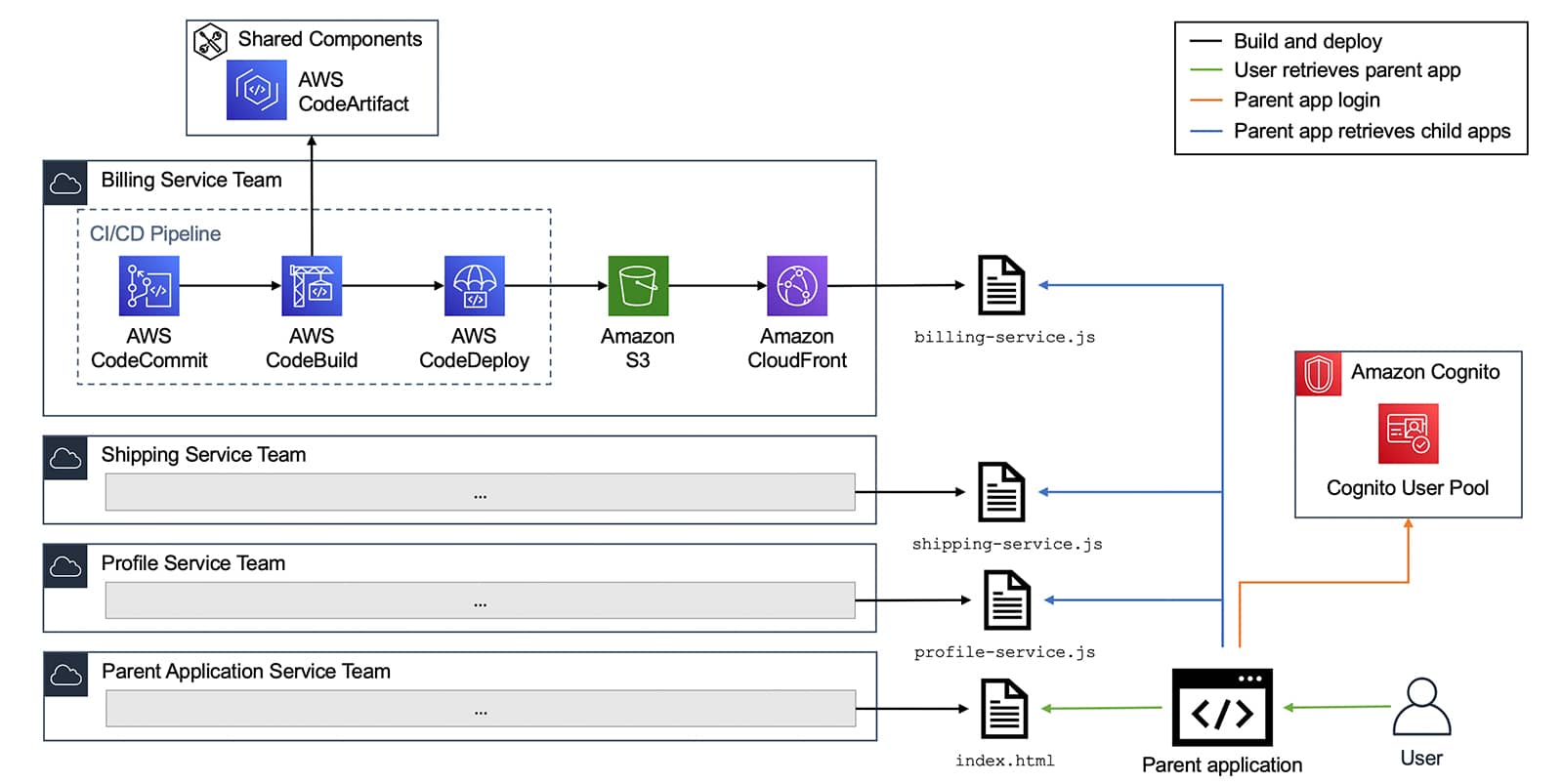AWS Architecture Blog
Category: Amazon CloudFront
LeasePlan Sitecore Implementation with Amazon EKS
LeasePlan is one of the world’s leading car leasing companies, with 1.9 million vehicles in more than 30 countries. They manage the entire lifecycle of their fleet, from purchase and maintenance to the sale of returned lease cars. Sitecore is a leading content management system in the enterprise market. It allows organizations to combine content […]
Build Chatbots using Serverless Bot Framework with Salesforce Integration
Conversational interfaces have become increasingly popular, both on web and mobile. Businesses realize these interactions are resulting in quicker resolutions of customer concerns than a more traditional approach of agent interactions. An intelligent chatbot on top of customer-facing platforms comes with inherent benefits. Among these are 24/7 customer support with no agent wait-times, improved operational […]
Micro-frontend Architectures on AWS
A microservice architecture is characterized by independent services that are focused on a specific business function and maintained by small, self-contained teams. Microservice architectures are used frequently for web applications developed on AWS, and for good reason. They offer many well-known benefits such as development agility, technological freedom, targeted deployments, and more. Despite the popularity […]
Serving Content Using a Fully Managed Reverse Proxy Architecture in AWS
With the trends to autonomous teams and microservice style architectures, web frontend tiers are challenged to become more flexible and integrate different components with independent architectures and technology stacks. Two scenarios are prominent: Micro-Frontends, where there is a single page application and components within this page are owned by different teams Web portals, where there […]
Fast and Cost-Effective Image Manipulation with Serverless Image Handler
As a modern company, you most likely have both a web-based and mobile app platform to provide content to customers who view it on a range of devices. This means you need to store multiple versions of images, depending on the device. The resulting image management can be a headache as it can be expensive […]
The Satellite Ear Tag that is Changing Cattle Management
Most cattle are not raised in cities—they live on cattle stations, large open plains, and tracts of land largely unpopulated by humans. It’s hard to keep connected with the herd. Cattle don’t often carry their own mobile phones, and they don’t pay a mobile phone bill. Naturally, the areas in which cattle live, often do […]
Architecting for Reliable Scalability
Cloud solutions architects should ideally “build today with tomorrow in mind,” meaning their solutions need to cater to current scale requirements as well as the anticipated growth of the solution. This growth can be either the organic growth of a solution or it could be related to a merger and acquisition type of scenario, where […]
Mercado Libre: How to Block Malicious Traffic in a Dynamic Environment
Blog post contributors: Pablo Garbossa and Federico Alliani of Mercado Libre Introduction Mercado Libre (MELI) is the leading e-commerce and FinTech company in Latin America. We have a presence in 18 countries across Latin America, and our mission is to democratize commerce and payments to impact the development of the region. We manage an ecosystem […]
Architecting a Low-Cost Web Content Publishing System
Introduction When an IT team first contemplates reducing on-premises hardware they manage to support their workloads they often feel a tension between wanting to use cloud-native services versus taking a lift-and-shift approach. Cloud native services based on serverless designs could reduce costs and enable a solution that is easier to operate, but appears to be […]
Scale Your Web Application — One Step at a Time
I often encounter people experiencing frustration as they attempt to scale their e-commerce or WordPress site—particularly around the cost and complexity related to scaling. When I talk to customers about their scaling plans, they often mention phrases such as horizontal scaling and microservices, but usually people aren’t sure about how to dive in and effectively scale […]









